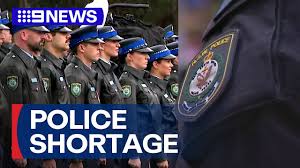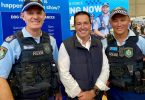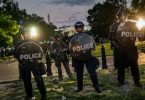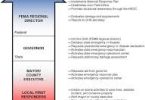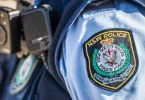Hundreds of NSW police officers across Sydney’s south-west are reportedly refusing to perform certain non-critical duties, citing ongoing staff shortages that continue to strain operational capacity.
According to 9News, officers from at least seven stations — including Auburn, Bankstown, Burwood, Campbelltown, Camden, Cumberland, and Fairfield — have begun redirecting lower-priority tasks back to relevant agencies.
The duties being declined include responses to school truancy checks, parking disputes, animal control issues, and participation in religious or politically sensitive operations such as pro-Palestinian rallies.
The move is expected to extend to additional stations in the region, as concerns grow over workload management and resource limitations. This coordinated action highlights the urgent need for systemic staffing solutions within the New South Wales Police Force.
Read More: NSW Police Officers Decline Duties Amid Ongoing Staff Shortages
NSW Police Push Back on Non-Critical Duties Amid Worsening Staff Shortages
Mounting Pressure Forces Officers to Withdraw from Low-Priority Roles
Police officers across New South Wales, particularly in Sydney’s south-west, are refusing to undertake a growing list of non-essential duties as staffing shortages continue to impact operations. The action is being taken in protest of overwhelming workloads and a lack of sufficient personnel to handle routine responsibilities.
Key Services Officers Are Declining
- The refusal includes a wide range of tasks traditionally handled by police, such as:
- Stationary random breath tests
- Bail compliance checks (excluding high-risk domestic violence offenders)
- Prisoner transportation
- Security escort of mental health patients between hospitals
Additionally, officers are stepping back from minor duties including truancy checks, parking disputes, animal complaints, and crowd management at religious and political gatherings such as pro-Palestinian rallies.
Union Speaks Out: ‘We’re Not the 24/7 Problem Solvers Anymore’
Kevin Morton, President of the NSW Police Association, expressed deep concern over the burden on frontline officers.”Staffing levels have got to a point in the south-west where our branches have said, ‘Once upon a time, we were the 24/7 problem solvers—now, we’re not anymore,'” Morton said.”
There are a number of jobs coming through that simply don’t require a police response, and our branches have said we’re not attending.”
Impact on Day-to-Day Policing
The growing list of declined tasks paints a stark picture of police being stretched thin. Officers are now triaging incoming jobs, redirecting low-risk or non-police matters to appropriate agencies.Morton shared an example of an officer called out to capture a blue tongue lizard in a shopping centre—highlighting the kind of calls contributing to the backlog.
“When you start your shift with 40 outstanding jobs, half of which shouldn’t be your responsibility, it really wears you down,” he said.
More Stations Expected to Join the Refusal
Stations in Campsie, Liverpool, Cessnock, and Maitland are expected to follow suit, joining the likes of Auburn, Bankstown, Burwood, Campbelltown, Camden, Cumberland, and Fairfield, where officers have already begun refusing non-critical tasks.
The statewide shortage has even forced officers to work on days off to meet demands. One officer from Penrith reportedly worked through their rostered leave to help cover a Sydney CBD protest.
Public Safety Remains a Priority
Despite the operational changes, the Police Association emphasized that community safety will not be compromised.“If there’s a job that doesn’t require a police response, we triage it and apply a risk assessment,” Morton explained.
“Animal complaints, parking issues, and low-level mental health concerns are not police matters—and we shouldn’t be expected to attend them.”
Commissioner Responds: Demand Reduction in Focus
NSW Police Commissioner Karen Webb acknowledged the strain and confirmed efforts are underway to reduce frontline pressure. She reassured the public that there is no risk to community safety, and that triage systems are being refined to ensure appropriate resource allocation.“We’re working to ensure the right agencies handle the right jobs.
Frequently Asked Questions (FAQs)
Why are NSW Police officers refusing certain duties?
NSW Police officers are refusing to perform certain non-critical duties due to severe staff shortages and overwhelming workloads. The decision aims to prioritize essential law enforcement tasks and reduce the burden on already stretched personnel.
Is public safety at risk because of this action?
No. According to both the NSW Police Association and Commissioner Karen Webb, all jobs are being triaged and risk-assessed, ensuring that public safety remains the top priority. Critical and high-risk incidents will continue to receive an immediate police response.
Who decides which jobs are considered non-critical?
Each police station, in consultation with the NSW Police Association, assesses incoming jobs based on risk and urgency. Duties that can be handled by other agencies or do not require police powers are considered non-critical.
Are other agencies being asked to take over some of these responsibilities?
Yes. NSW Police are redirecting many low-priority jobs—such as minor mental health issues and animal-related calls—to the appropriate government or community services.
How long will this action continue?
There is currently no fixed timeline. The action will likely continue until sufficient staffing levels are restored or systemic changes are made to alleviate the workload on existing officers.
Conclusion
The refusal by hundreds of NSW Police officers to undertake non-critical duties highlights a growing crisis within the state’s law enforcement system. Strained by persistent staffing shortages and increasing administrative burdens, frontline officers are taking a stand to protect their wellbeing and ensure that core policing responsibilities receive the attention they demand.

